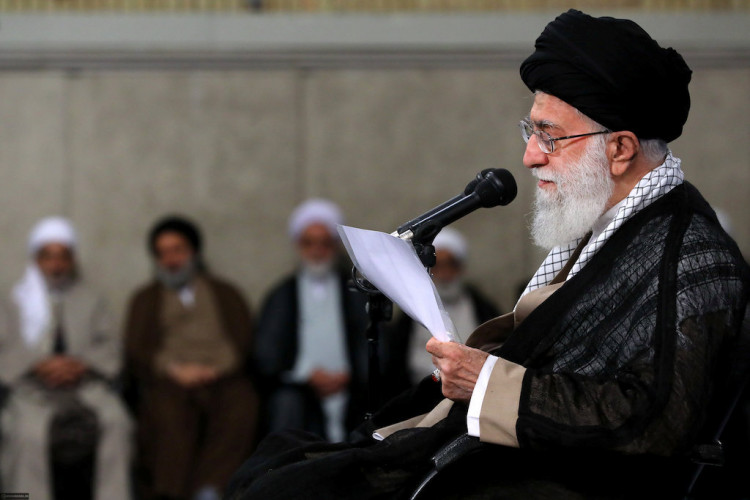Iran says it has control of the Gulf and the Strait of Hormuz, a high-ranking Iranian navy official declared on Monday, prompting the White House to release a contradicting statement seeking to clarify the claims.
Earlier this week, Gen. Alireza Tangsiri, Iran's head of the Revolutionary Guards navy said that the Islamic Republic has the full control of the major shipping route and the US Navy doesn't belong there, a Reuters report indicated.
The Strait of Hormuz is a narrow shipping route which runs between the Persian Gulf and the Gulf of Oman. It holds a huge strategic significance as it is the only sea passage from the Persian Gulf to the Arabian Sea and the open ocean beyond. Around 20 percent of the global oil trade passes through this waterway.
Iranian officials have long been issuing threats to block the chokepoint, signaling its capacity to take military action in the Gulf region which would include blockage of oil exports running along the strait. This, according to reports, is in retaliation for the renewed US sanctions implemented by the Trump administration this month plus an upcoming restrictive policy which would take effect in November.
In his statement that was cited over at Iran-based Tasnim news agency, the navy official said that the Iranian armed forces can single-handedly "ensure the security of the Persian Gulf," a declaration which would then render the presence of American and other international military forces in the area, irrelevant. In his own words, Tangsiri called them "aliens...whose home is not in here."
Iran test-fired ballistic missiles in the area earlier this month, Wall Street Journal reported. More than a hundred gunboats and a fleet of ships participated in the naval drill in hopes to send the US a message saying that Iran owns the Strait of Hormuz.
The US Secretary of State Mike Pompeo, however, said that this is hardly the case at all. In his response cited over at Fox News, the American official blatantly said that Iran "does not control the Strait of Hormuz." The passageway is nonetheless an "international waterway" where no single country or entity can declare full sovereignty.
The US, as Pompeo added, will continue to collaborate with partners in ensuring the "freedom of navigation and the free flow of commerce in international waterways."
According to the US Energy Information Administration, the blockage of the Strait of Hormuz could severely affect the global oil consumption. Even when it is done temporarily, blocking this strait could certainly "lead to a substantial increase in total energy costs."






